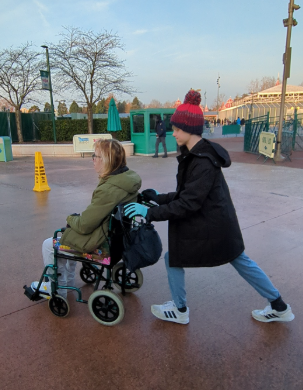This “PDA” post has been in the working stages for the last three years. The reason for this is because every time I try to write it , I learn a new fact or face a new challenge and of course we ALWAYS want to share the most accurate and most helpful information with you.
It’s taken me 3 years to accept that is no right or final answer. Supporting a child with a PDA profile is a never ending learning curve, one that has wonderful highs but also extremely painful lows. This post aims to share with you what is working for US in this moment in time! We can’t promise that everything will work in your family dynamic or school, but it’s worth a read and maybe try a few of these tips we’ve learned on our journey so far. .
Herbie, our third son is neurodivergent. He was unable to see until he was 9 weeks old because he had delayed visual maturation and it was very obvious from the get got that he is an AuDHDer . His beautiful autistic brain didn’t really start to negatively impact him until he was around 11. Up until this point, his social challenges and quirky nature had always been seen as funny or just different. Secondary school has sadly changed all that.
Herbie’s school is brilliant and he has so much support from the SEN team, but being “different” in mainstream senior is tough! Throw PDA into the mix and as you can imagine, he faces daily challenges. We are IMMENSELY proud of him.
PDA, or Pathological Demand Avoidance ( we are not keen on the title) is a profile that some autistic individuals present with. In it’s simplest description, Herbie has an intense need to control situations and resists even seemingly reasonable requests. This avoidance is driven by his extreme anxiety and an absolute NEED to maintain a sense of autonomy.
It is EXTREMELY complex and individualized!
For Herbie we have learned to…
Shift our mindset. Supporting a child with PDA is NOT being taught in any parenting class or delivered in any standard parenting or teacher training package. You are on your own and so if you are waiting for outside help to swoop in and rescue you, they wont. We learned about Herbie’s needs, did our research and shifted our way of thinking to meet them.
Recognise a lack of hierarchy. It isn’t meant to be disrespect or a disregard for authority , it’s his brain type. Herbie see everyone as equals and is extremely sensitive to justice / injustice.
Collaboration is key. If we are trying to teach while following a curriculum or support as parents, allow your child to have autonomy where ever possible, ie shift lessons/ chores around using a TA or a family member to allow for more flexibility.
Remember that silent demands are still demands. Herbie struggles with the demands that he places upon himself! This means that he can meltdown seemingly out of nowhere, but things will have been bubbling under the surface and we were unaware.
Visual resources in school and at home will need tweaking so options are available with suitable preset / pre-approved options.
Talk about the non negotiables. Safety and the Law are ours at home and in school.
Trust is key and this means that you have to lay the groundwork. Don’t say something unless you can honor it! Herbie is anxious enough, he needs to know that he’s not going to be let down by the people he trusts.
For Herbs, praise and incentives commonly don’t help in fact they can make things worse. We tell him we love him and that we are proud of him everyday but that is where the praise ends. He doesn’t like the attention that praise brings and it can often make him sad, overwhelmed or angry.
In the school day there is often a huge amount of hidden anxiety due to masking. Children with a PDA profile are often incredible maskers. This mask will often come off at home and is the main cause of his school absence. Herbs is exhausted a lot of the time.
We use humor and a bit of silliness. It seems to help reduce his anxiety. We also try to keep communication open to reduce crossed wires and we respect him when he says “I cant do this ” We NEVER say “yes you can.” If he is telling us that he cant, we respect it and reshape it to make it more manageable for him.
This PDA post will undoubtedly be the first of many on our learning journey. Each day is new and different and some days are… well, rubbish! As his Mum I am learning to support him the best way I can but it is not easy. We hope that this will help your family and schools too 🙂

